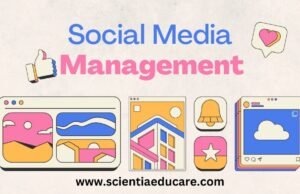New York University (NYU) – New York, United States
New York University (NYU) – New York: A Global Leader in Education, Innovation, and Urban Engagement
Introduction: NYU – A Dynamic Urban University Empowering Global Minds
Situated in the cultural and commercial epicenter of New York City, New York University (NYU) stands as one of the most prestigious and influential private research universities in the world. Founded in 1831, NYU has grown into a global institution with campuses and academic centers spanning continents. Known for its innovative programs, strong research infrastructure, and real-world impact, NYU attracts students from all walks of life seeking academic excellence in one of the world’s most vibrant cities.
From business and law to the arts and sciences, NYU fosters a learning environment where theory meets practice, where innovation is nurtured, and where global citizens are born. The university is renowned for producing industry leaders, groundbreaking researchers, artists, and social changemakers.
1. Establishment and Historical Background
- Established: 1831
- Founder: Albert Gallatin (Former U.S. Secretary of the Treasury)
- Type: Private, Nonsectarian, Research University
- Location: New York City, New York, USA
- Motto: Perstare et Praestare (“To Persevere and to Excel”)
- Accreditation: Middle States Commission on Higher Education (MSCHE)
NYU was founded with the vision of offering a merit-based education, free from the constraints of social background. Over nearly two centuries, it has transformed into a global academic powerhouse with a distinctly urban identity.
2. Affiliations and Global Network
NYU maintains affiliations with prominent educational consortia and boasts an international footprint:
- Association of American Universities (AAU)
- Universitas 21
- Global Network for Advanced Management
- World Economic Forum Partnerships
- Institute of International Education (IIE)
- Strategic academic centers in Abu Dhabi, Shanghai, Accra, Berlin, Buenos Aires, London, Madrid, Paris, Sydney, Tel Aviv
NYU’s global presence enables students to gain immersive international experiences and engage with diverse intellectual traditions.
3. Academic Programs and Courses Offered
NYU offers over 270 areas of study through its multiple undergraduate and graduate schools, which are home to some of the top-ranked academic programs in the world.
Major Schools and Colleges:
- College of Arts & Science (CAS)
- Stern School of Business
- Tandon School of Engineering
- Gallatin School of Individualized Study
- Steinhardt School of Culture, Education, and Human Development
- School of Law
- Grossman School of Medicine
- Silver School of Social Work
- College of Dentistry
- School of Global Public Health
- Tisch School of the Arts
- School of Professional Studies (SPS)
Popular Undergraduate Majors:
- Business and Finance
- Computer Science
- Politics and International Relations
- Media, Culture, and Communication
- Biology and Neural Science
- Performing Arts (Drama, Dance, Film)
- Engineering (Computer, Mechanical, Civil)
Graduate and Professional Programs:
- MBA (Full-time, Tech MBA, Executive MBA) – Stern School
- JD, LLM, JSD – School of Law
- MD, MS in Biomedical Informatics – Grossman School of Medicine
- MFA in Film, Acting, Design – Tisch School
- MPA, MPP – Wagner Graduate School of Public Service
- MS and PhD in Engineering, AI, Cybersecurity – Tandon School
Interdisciplinary and Online Offerings:
- Dual degrees (e.g., JD/MBA, BA/MA)
- Online Master’s Programs in Education, Marketing, Data Science
- Certificates and executive education through NYU SPS
4. Campuses, Facilities, and Infrastructure
Main Campus:
Greenwich Village, Lower Manhattan – A historic and artistic neighborhood that forms the heart of NYU’s academic life.
Brooklyn Campus:
Home to the Tandon School of Engineering, with high-tech labs and innovation spaces.
NYU Global Campuses:
- NYU Abu Dhabi – A full-fledged degree-granting campus
- NYU Shanghai – Undergraduate and graduate programs with bilingual instruction
- Academic centers in 12 cities across 4 continents
Key Facilities:
- Bobst Library – One of the largest academic libraries in the U.S.
- Center for Data Science
- NYU Langone Health Complex
- NYU Makerspace and Research Labs – Particularly strong in engineering and AI
- Performance Venues: Skirball Center for Performing Arts, Tisch theaters
- Student Housing: Residential options in Greenwich Village and Brooklyn
- Dining Services, Fitness Centers, Student Lounges
5. Research Excellence and Global Impact
NYU is a major global research institution with over $1 billion in annual research expenditures. It ranks among the top 10 U.S. universities for research output and is home to over 130 research centers and institutes.
Major Research Areas:
- Artificial Intelligence and Machine Learning
- Public Health and Epidemiology
- Financial Technology and Blockchain
- Urban Planning and Environmental Sustainability
- Neuroscience and Cognitive Psychology
- Law, Human Rights, and Public Policy
- Journalism, Media, and Communication
Notable Research Centers:
- NYU Center for Neural Science
- AI Now Institute – Leading ethical AI research
- Courant Institute of Mathematical Sciences
- NYU Langone Health – Biomedical and clinical research
- Center for Urban Science and Progress (CUSP)
- Rudin Center for Transportation Policy & Management
6. Academic Reputation and Rankings
NYU has emerged as a global leader in higher education, particularly noted for its programs in business, law, arts, medicine, and technology.
Global Rankings:
- QS World University Rankings 2025: #38 globally
- U.S. News & World Report (2025): #35 among National Universities (U.S.)
- Times Higher Education (2025): Top 30 for Arts and Humanities
- QS for Performing Arts: #1 globally
- Financial Times: Top 10 globally for Stern MBA
Program-Specific Accolades:
- Stern School of Business: Top 5 in Finance and Global Business
- School of Law: #6 in the U.S. (U.S. News)
- Tisch School of the Arts: Leading global school for film and performing arts
- Courant Institute: Top 10 worldwide for Mathematics and Computer Science
7. Career Development and Placement Cell
The NYU Wasserman Center for Career Development offers an array of services to prepare students for the global workforce.
Key Services:
- Internship and job placement assistance
- Career coaching and professional development workshops
- Industry-specific career fairs and alumni panels
- Resume reviews, mock interviews, networking events
- Access to NYU Handshake, LinkedIn Learning, and other career tools
- Global Internship Program (placements in Europe, Asia, Latin America)
Career Outcomes:
- Average starting salary for undergraduates (2024): $75,000
- Stern MBA median salary: $165,000
- Law School placement rate: 97% within 10 months
- Strong employment in finance, law, tech, health, media, and entertainment
Top Recruiters:
- JPMorgan Chase, Goldman Sachs, Google, Meta, Amazon, Bloomberg
- UN, World Bank, Pfizer, Deloitte, L’Oréal, ViacomCBS, Disney, McKinsey
8. Honors, Awards, and Global Recognition
Distinguished Faculty and Alumni:
- 38 Nobel Laureates
- 30 Pulitzer Prize Winners
- 7 MacArthur Genius Grant recipients
- Multiple Academy, Grammy, Tony, and Emmy Award winners
- Numerous U.S. and foreign diplomats, CEOs, politicians, and cultural icons
Notable Alumni:
- Martin Scorsese – Film director
- Lady Gaga – Musician and actress
- Elmer Holmes Bobst – Philanthropist and health policy reformer
- Alec Baldwin – Actor
- Alan Greenspan – Former Federal Reserve Chairman
- Spike Lee – Director and Professor at Tisch
- Rudy Giuliani – Former NYC Mayor
- Elizabeth Olsen, Mahershala Ali, Tom Ford – Noted entertainers and designers
9. Address and Contact Details
Main Campus Address:
New York University (NYU)
70 Washington Square South
New York, NY 10012
USA
Brooklyn Campus:
6 MetroTech Center
Brooklyn, NY 11201
Contact Information:
- Phone: +1 (212) 998-1212
- Undergraduate Admissions: admissions@nyu.edu
- Website: https://www.nyu.edu
- Graduate Programs: https://gsas.nyu.edu
- Stern School: https://www.stern.nyu.edu
- NYU Global Sites: https://www.nyu.edu/global.html
Social Media:
- Instagram: @nyuniversity
- Facebook: /nyu
- Twitter/X: @nyuniversity
- LinkedIn: New York University Official
Conclusion: A Global University Rooted in Excellence
New York University (NYU) embodies what it means to be a truly global institution. With its academic powerhouses in business, law, media, tech, medicine, and the arts—and a network that spans the globe—NYU continues to empower generations of students to become leaders, thinkers, and changemakers in every sector of society.
From Wall Street to Hollywood, from policy rooms to operating rooms, NYU graduates make a difference. As the world becomes more interconnected and complex, NYU’s commitment to inclusive education, real-world learning, and global citizenship places it at the forefront of shaping a better future.
New York University undergraduate degrees, NYU Stern MBA admission requirements, study performing arts at NYU Tisch, NYU Tandon engineering programs, NYU career services and internships, NYU law school global ranking, best private universities in NYC, NYU campus life experience, NYU international student scholarships, NYU online master’s programs




